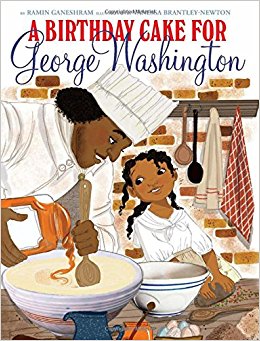I had a great class today that I have been dying to share all day. We began our lesson with inspiration from PBS News Hour’s Clint Smith reciting A Letter to Five of the Presidents Who Owned Slaves While they Were in Office. The message of the video is essentially that there are some parts of history that aren’t written into the textbook or the curriculum, but that doesn’t mean that those parts of history didn’t exist.
I’ve been emphasizing the idea of the winner writing history to my students and colleagues for a long time. Just because the textbook chapter is about Washington, it doesn’t mean that there weren’t other people involved in the history of the time. Women were so involved in politics that there was a Ladies’ Gallery in the US Congress that was packed like sardines on a frequent basis. Slave labor allowed members of government to have fancy dinners and discuss politics outside the Senate and House floors. Washington himself brought slaves to New York with him while he ran the country. It is so important to teach the complete narrative, and while Jay’s Treaty and the Whiskey Rebellion are parts of the building of the republic that we can’t ignore, there are entire groups of people we can’t ignore, either.
After watching and briefly decompressing what we saw on PBS News Hour, I introduced students to a story I heard on NPR last January about a book Scholastic published and then pulled called A Birthday Cake for George Washington. (You can find the NPR article here.) The book is about Hercules, a man owned by President Washington, who is his cook and travels with Washington during his presidency. Hercules is tasked with making Washington’s birthday cake in the book, and the story is narrated by Hercules’s daughter, Delia.
 |
| Image Credit: Amazon.com |
I don’t read the entire story to the students. It isn’t necessary for them to hear the story because the theme of the book, not the storyline, is important. We discuss some of the words and the artwork, but the book itself is insensitive at best. I find the discussion of this insensitivity important for students to explore along with other issues prompted by this book. Students discuss the audience of this book (young children) and the history of slavery that those children learn based on the summary on the book jacket and the illustrations. They find the below picture of Hercules, Delia, and George together to be particularly interesting, as it shows such happiness and as one student put it, “as if they’re family and best friends when the relationship they have is completely unnatural. Hercules is purchased and his daughter never knew freedom!”
 |
| Image Credit: Amazon.com |
One of the most interesting parts of our discussion today was about the summary on the book jacket:
Everyone is buzzing about the president’s birthday! Especially George Washington’s servants, who scurry around the kitchen preparing to make this the best celebration ever. Oh, how George Washington loves his cake! And, oh, how he depends on Hercules, his head chef, to make it for him. Hercules, a slave, takes great pride in baking the president’s cake. But this year there is one problem–they are out of sugar.
 |
| What should the book say was Hercules’ biggest problem? |
Tomorrow, we will continue exploring Hercules’ life and the lives of those around him by working with biographical information. Washington has a name and is a part of history, doesn’t Hercules, the man who was key in the functioning of Washington administrations’ famous bipartisan dinners deserve the same?
